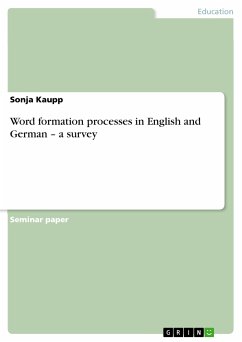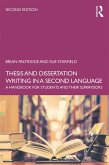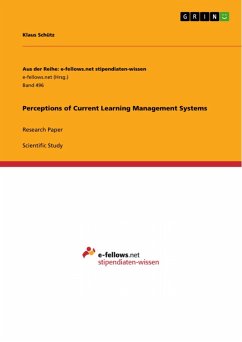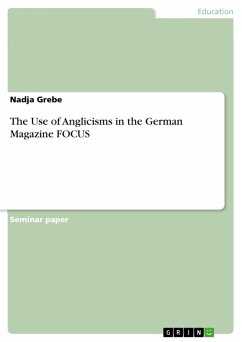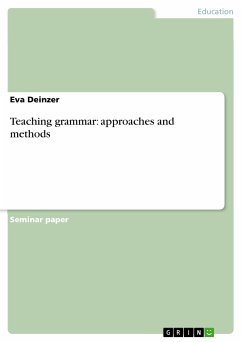Seminar paper from the year 2009 in the subject Didactics for the subject English - Pedagogy, Literature Studies, grade: 2,0, University of Freiburg (Englisches Seminar), course: Contrastive Linguistics, language: English, abstract: When German native speakers converse with English native speakers, they are often astonished how easily and spontaneously new words can be created in English. At the same time, English speakers are astonished by the number of lengthy compounds the German use in written language. But still, most word formation processes are very similar in both languages - both English and German even share some affixes, for example be- in be-friend or be-zahlen or -er in sing-er or Säng-er. I want to investigate the differences and similarities concerning the major word formation processes in English and German (compounding, derivational suffixation and conversion). Firstly, I will provide an appropriate background by looking at contrasts in the lexicon and will also touch on some diachronic explanations. Then I will explain the different units of words. Ultimately, I want to get an insight into a very recent phenomenon, namely the adding of German affixes to English words in German word formation - the so-called 'Denglisch'.
Dieser Download kann aus rechtlichen Gründen nur mit Rechnungsadresse in A, B, BG, CY, CZ, D, DK, EW, E, FIN, F, GR, HR, H, IRL, I, LT, L, LR, M, NL, PL, P, R, S, SLO, SK ausgeliefert werden.

